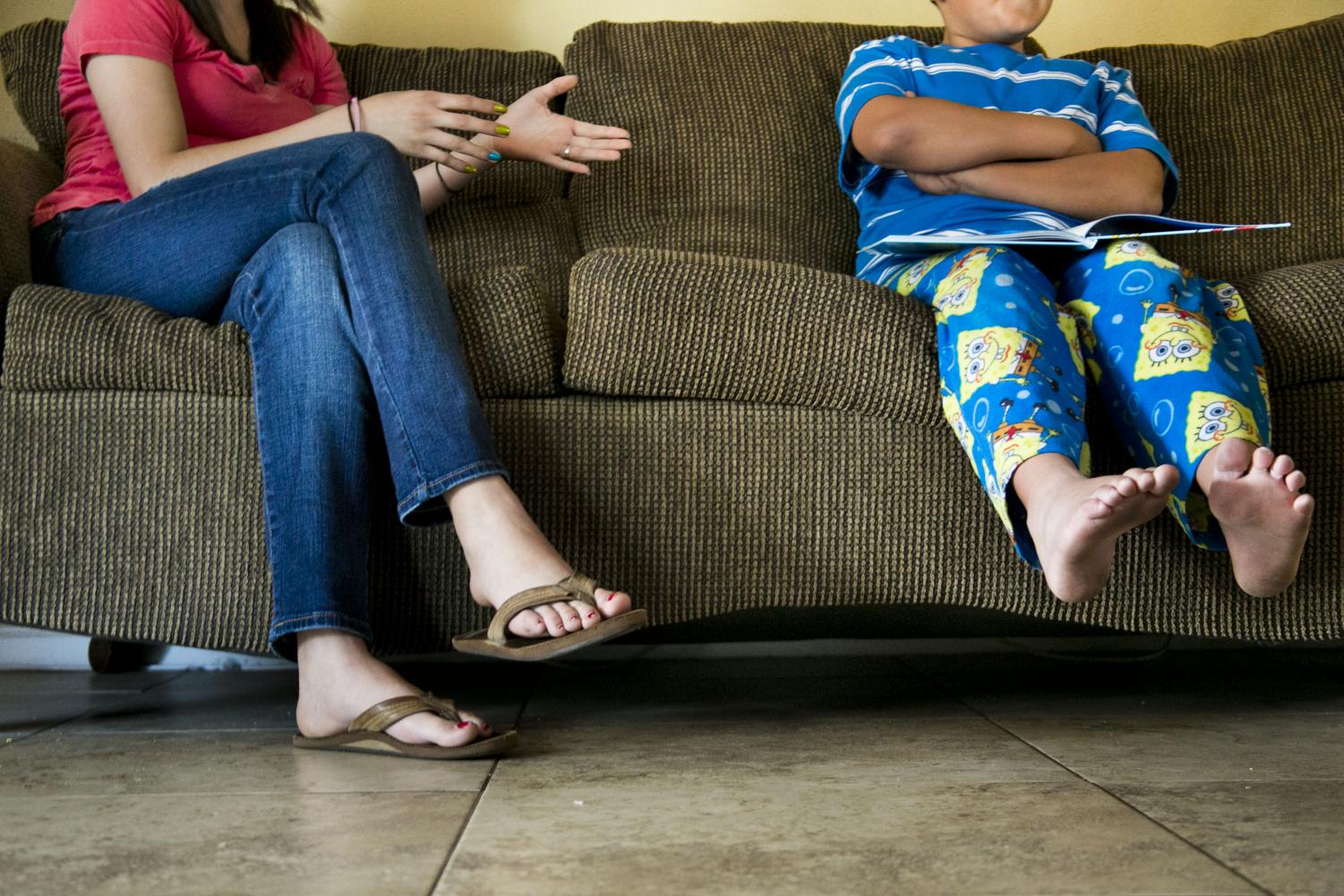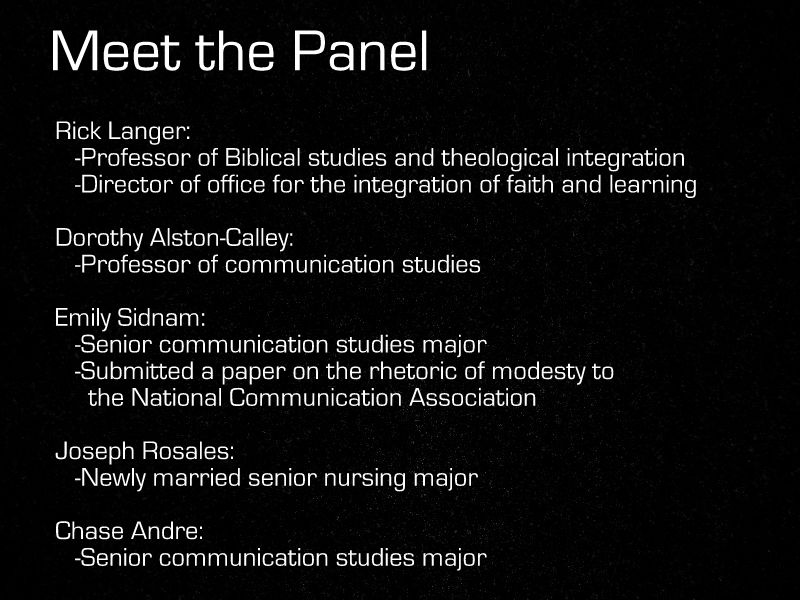Written by Claire Callaway
Being unable to speak the same language as your parents is probably unthinkable to most Americans, but for Amy Ortega and her family, it’s an everyday reality.
Each year thousands of Mexicans make the huge sacrifice of leaving their home country and come to America in search of better opportunities for their families. Often, one of the secondary effects of this decision is that the immigrants’ children are born and raised as members of a culture that is foreign to their parents.
Since most immigrant adults who come to America spend considerable time working to provide for their families, their children might not get to spend much time with them or learn about their cultural heritage, which includes learning the language their parents speak.
Amy Ortega, a senior journalism major with an emphasis in public relations, has firsthand experience with this situation. Her parents cannot communicate well in English, and her younger siblings cannot communicate well in Spanish.
“My sister just sent me a text last week that said something like, ‘I’m never going to tell Mommy anything again. I was in the middle of a story and she was correcting my Spanish. I can’t ever tell her anything personal because she either corrects my Spanish or can’t understand my English,’” says Amy. The lack of communication between the parents and the children has caused their relationships to suffer.
Amy’s parents were born and raised in Mexico. Her father was one of 13 children. He began working on farms when he was 7 to help support his family. Because of this, he did not have the opportunity to go to school — he was too busy working to have time to get an education.
Amy’s parents met in Mexico and had her oldest sister there. Soon afterward, they moved to America to start a new life. They had two more children, including Amy. Sadly, her mother passed away from lung cancer when Amy was 2 years old. Her father remarried four years later and he and his wife had three more children together.
Amy grew up Roman Catholic and was able to attend catechism class in Spanish. This, combined with going to a Spanish-speaking elementary school, allowed Amy to learn Spanish and preserve her parent’s home culture. Amy’s parents have not had a need to master English because they have remained immersed in the Spanish-speaking community in Anaheim, and her father has time for little else besides work.
“I’m not trying to make excuses for them,” Amy says. “However, my dad’s purpose in coming here was to work and to give us the opportunity to do better than he did.” Amy’s younger sister and two brothers are 14, 10 and 9, respectively. They grew up with siblings who spoke English and have only attended English-speaking schools. They are surrounded by an English-speaking culture.
Their mother, Alma Veronica Ortega, feels that the worst effect of this problem is that she is unable to share her culture with her children. “When I want to teach the children about the games I used to play in Mexico, they don’t understand me because they’re not video games,” she says. “They’re older games, singing games and the like. It makes me sad that they don’t know anything other than their video games, anything outside of what they have now.”
Artemiza Hernández, a Biola modern languages professor with a PhD in Hispanic literature, who immigrated to America from Mexico when she was 17 years old, affirms that this is a common problem for Mexican-American families. “Many Hispanic parents work from eight to 12 hours a day,” she says. “Maybe they even have two different jobs. The kids end up just raising themselves because parents just come home to sleep.” Hernández says the lack of interaction with their parents means that English becomes the children’s first language. When they speak Spanish in the home, it is very basic.
Hernández has also seen that Latino children often lose their ability to speak Spanish because they are made fun of by other children in school for speaking a foreign language, and consequently do not want to speak it anymore. However, this has not been a problem for Amy. In fact, she is thankful that she has had the opportunity to learn Spanish because it has helped her in her career, even prior to graduation.
Interestingly, Amy’s little sister, Ivette, doesn’t have a problem with the language barrier between herself and her parents. In fact, she feels that she can communicate with them effectively enough using “Spanglish.”
“If I’m talking to my mom in English and I use a word she doesn’t know I can just say synonyms until she gets what I’m talking about,” Ivette says. She does admit that it gets annoying when they correct her Spanish all the time. “They say I’m not a real Mexican and stuff like that,” she says. “I do want to take Spanish in school. I want to keep learning.” Amy feels that her younger sister doesn’t see it as a problem yet because she is not old enough to understand the communication breakdown that it causes.
Amy also feels that being bilingual is a good way to honor her parents for their hard work. She did not encounter anyone looking down on non-English speaking immigrants until she came to college. Amy was stunned when she heard people like her parents being labeled as lazy for not speaking English.
“My dad works so hard,” she says. “Why should he go out and learn English? I will work twice as hard to speak his language. He made the crazy choice of coming here in the first place. [Learning English] is not his job. But that’s just my mindset. Other people think differently.”
All in all, this is a very complicated issue with no clear solution. A cultural and linguistic gap between parents and children is a part of daily existence for some families here in America. The circumstances differ slightly in every case, and how each child feels about the situation varies. Amy feels that preserving her parents’ cultural heritage should also be an important part of who she is. This, combined with her admiration for her parents’ work ethic, has been an inspiration to her.
“I should work so that I can one day give back to them,” she says. “I’m here for them.”





